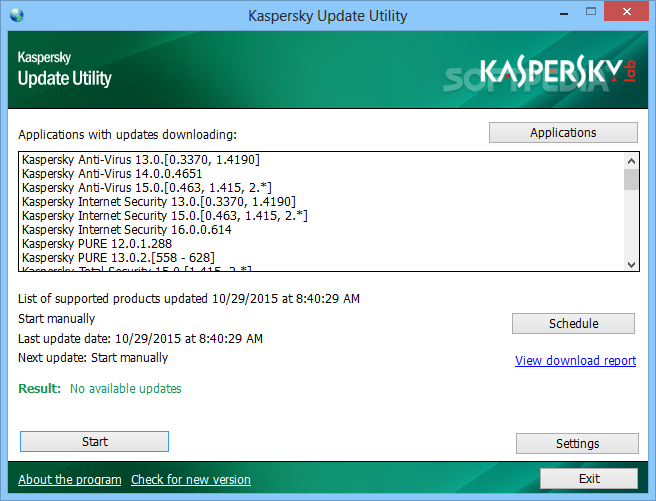


You can buy Kaspersky PURE 3.0 Total Security for 1, 3 or 5 PCs, and the 3-PC package is a very reasonable £42. AV-Test may have to pep up its benchmarks if this keeps happening. The software hit 100 per cent detecting both established and brand new threats under Protection. In Usability, it gave just 1 false detection over two months, against a group average of 4. The Kaspersky software showed a resource hit level of just 1 against a group average of 5 under Performance. Usability checks for false warnings and detections, which can be annoying when you just want to get on with your work. Protection measures effectiveness against both widespread and zero-day malware, while Performance looks at the resource hit the software places on the PC. In all three sections of the tests: Protection, Performance and Usability, it scored a full 6 points. In its latest round of tests under Windows 8.1, The German testing site AV-Test rated Kaspersky Internet Security 2014, which uses the same AV engine, at 18.0/18.0. The program has a low resource hit and in our tests it only increased a 2GB file copy time from 1 minute 32 seconds to 1 minute 48 seconds, when we set its system scan running in the background. A repeat scan looked at all but 16 of these files, but only took 46 minutes. When we scanned our 30GB basket of files, the program took 1 hour 18 minutes to examine 246,578 files, which gives it a scan rate of 226 files per second, one of the highest we’ve seen from an IS suite. Although you can tidy up and remove temporary files and flush caches, there’s no attempt made to help you rationalise the apps that start on boot-up, or to optimise the running of background tasks which can slow a system down. The only real surprise in the suite is a lack of PC tune-up facilities. There’s also a data shredder to securely delete sensitive data you no longer need on your PC, and a virtual keyboard to foil keyloggers. It works with the data encryption module to provide a truly private store for all these tokens. The password manager removes the need to store the many, many passwords you typically use for online shopping, banking and entry to sites.


 0 kommentar(er)
0 kommentar(er)
